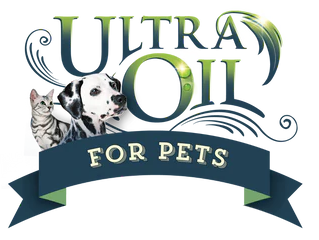
Achieving Healthy Skin and Coat for Your Pets
Share
Our furry companions rely on us to ensure their overall health and well-being. A key indicator of their health is the condition of their skin and coat. A healthy skin and coat not only contribute to their appearance but also reflect their overall internal health. Today, we will explore everything you need to know about maintaining healthy skin and coat for your pets.
Importance of Healthy Skin and Coat

The skin is the largest organ of a pet's body and serves multiple functions, including protection against external pathogens, regulation of body temperature, and sensory perception. A shiny coat and healthy skin indicate good nutrition, proper grooming practices, and overall well-being. Conversely, skin issues such as dryness, itching, flakiness, or excessive shedding can be signs of underlying health problems.
Nutritional Requirements for Healthy Skin and Coat
1. Essential Nutrients:
A balanced diet rich in essential nutrients is crucial for maintaining healthy skin and coat. Look for pet foods that contain high-quality proteins, omega-3 fatty acids (such as EPA and DHA), omega-6 fatty acids, vitamins (like A, E, and B-complex), and minerals (including zinc and selenium).
2. Omega Fatty Acids:
Omega-3 and omega-6 fatty acids play a critical role in maintaining skin health and coat luster. They help reduce inflammation, support cell membrane structure, and promote healthy skin cell turnover. Sources of omega-3 fatty acids include fish oil, flaxseed oil, and algae extracts.
Ultra Oil for Pets contains a superblend of ingredients that all help to reduce and treat dry skin and hair conditions like hot spots, allergic reactions, itching, fur loss, and more. It is an excellent source of Omega Fatty Acids, vitamins, and minerals. In fact, it contains:
-Omega 3 = 3500 mg/tbsp -Omega 6 = 6000 mg/ tbsp -Omega 9 = 1500 mg/tbsp
Additionally, it can help: Lower blood LDL cholesterol levels, lower blood pressure, improve cardiovascular circulation and function, improve organ function, improve immunity levels, and increase energy levels and metabolic rate.
3. Protein:
Protein is essential for maintaining healthy skin and coat structure. Ensure that your pet's diet includes high-quality sources of protein, such as meat, fish, poultry, and legumes.
4. Water:
Adequate hydration is vital for skin health. Ensure your pet has access to clean, fresh water at all times to support skin hydration and overall health.
Grooming Practices for Healthy Skin and Coat
1. Regular Brushing:
Brushing your pet regularly helps remove dirt, debris, and loose hair from the coat. It also stimulates the skin, distributes natural oils, and prevents matting.
2. Bathing:
Bathe your pet as needed using a mild pet shampoo formulated for their specific skin type. Over-bathing can strip the coat of natural oils, so follow guidelines recommended by your veterinarian or groomer.
3. Ear and Dental Care:
Clean your pet's ears regularly to prevent infections. Additionally, maintain good dental hygiene by brushing your pet's teeth regularly and providing dental treats or toys.
4. Trimming Nails:
Keep your pet's nails trimmed to prevent overgrowth, which can affect their gait and cause discomfort.
Common Skin and Coat Issues in Pets

1. Allergies:
Pets can develop allergies to various environmental factors (pollen, dust mites, etc.) or food ingredients. Allergies often manifest as itching, redness, skin infections, or ear inflammation.
2. Parasites:
Fleas, ticks, and mites can cause skin irritation, hair loss, and transmit diseases. Use preventive treatments recommended by your veterinarian to protect your pet against parasites.
3. Dry Skin:
Dry skin can result from environmental factors (dry air, cold weather), allergies, or nutritional deficiencies. Symptoms include flakiness, itchiness, and dull coat.
4. Infections:
Bacterial or fungal infections can lead to skin issues such as redness, odor, hair loss, and crusty lesions. Prompt veterinary attention is essential for diagnosis and treatment.
Maintaining healthy skin and coat for your pets requires a holistic approach that includes proper nutrition, regular grooming, preventive care, and prompt veterinary attention when needed. By providing a balanced diet rich in essential nutrients, establishing a consistent grooming routine, and monitoring for any signs of skin issues, you can help your pets achieve and maintain optimal skin and coat health. Remember, each pet is unique, so tailor your care regimen based on their breed, age, and individual needs. With proactive care and attention, you can ensure your furry friends have healthy, shiny coats and radiant skin for years to come.
Investing in your pet's skin and coat health not only enhances their appearance but also contributes to their overall happiness and well-being. By nurturing their skin from the inside out and maintaining a regular grooming routine, you're not only caring for their physical health but also strengthening the bond between you and your beloved companion.

